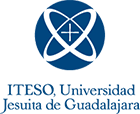|
|
Administrative Control of Personnel
 Develop competencies for the operational management of policies, procedures, and metrics to manage labor relations ranging from hiring processes, salary payment, staff control, internal official communication, and institutional representation before different labor and social security authorities, in fulfillment of applicable legal, regulatory and ethical frameworks.
Develop competencies for the operational management of policies, procedures, and metrics to manage labor relations ranging from hiring processes, salary payment, staff control, internal official communication, and institutional representation before different labor and social security authorities, in fulfillment of applicable legal, regulatory and ethical frameworks. |
|
Talent Attraction and Integration
 Develop appropriate methods and processes to attract the personnel that the organization needs, with the talent required to meet its strategic needs, as well as to integrate the hired personnel with their work responsibilities and the members of the work team, in order to ensure their commitment to the company and their productivity.
Develop appropriate methods and processes to attract the personnel that the organization needs, with the talent required to meet its strategic needs, as well as to integrate the hired personnel with their work responsibilities and the members of the work team, in order to ensure their commitment to the company and their productivity. |
|
Business Management
|
Business Mathematics
|
Oral and Written Communication
|
Personal University Project
|
Languages
|
|
|
|
Talent Development
 Detect personnel’s talent development needs and, based on the organization’s requirements and on the people’s interests involved, capabilities and potential, draw up training plans and programs to develop their workplace competencies and maximize their contribution to the organization’s results.
Detect personnel’s talent development needs and, based on the organization’s requirements and on the people’s interests involved, capabilities and potential, draw up training plans and programs to develop their workplace competencies and maximize their contribution to the organization’s results. |
|
Sociology of Labor
 Analyze the contemporary dynamics of socially organized work from a critical standpoint, taking into account current trends affecting employment influenced by globalization, the dominant economic model, and technological development.
Analyze the contemporary dynamics of socially organized work from a critical standpoint, taking into account current trends affecting employment influenced by globalization, the dominant economic model, and technological development. |
|
Legal Framework of Business
|
Business Statistics
|
Historical Social Context
|
Information and Numerical Data Management
|
Languages
|
|
|
|
Work Performance Management
 Develop a performance management system for personnel that includes evaluation instruments and processes, as well as the determination of the evaluation’s implications in terms of recognizing individual and team contributions, setting new objectives and goals, identifying training needs, and career planning.
Develop a performance management system for personnel that includes evaluation instruments and processes, as well as the determination of the evaluation’s implications in terms of recognizing individual and team contributions, setting new objectives and goals, identifying training needs, and career planning. |
|
Organizational Behavior
 Formulate proposals to improve the management of people and their relationships within the organization at three different levels: the individual, the group or team, and the organization as a comprehensive system. These proposals should contribute to the development and maintenance of a culture of productivity and the improvement of the quality of work life.
Formulate proposals to improve the management of people and their relationships within the organization at three different levels: the individual, the group or team, and the organization as a comprehensive system. These proposals should contribute to the development and maintenance of a culture of productivity and the improvement of the quality of work life. |
|
Social Responsibility and Labor Relations
 Develop skills to diagnose and obtain indicators on the conditions of labor relations and conflicts between the organization, the union, and workers, as well as to propose the appropriate labor strategy for each work center, considering its social environment, the industrial sector in which it participates, and the existing labor culture in the organization, in order to positively influence the balance of working conditions at all levels and areas of the company, taking into account legal and social responsibility frameworks.
Develop skills to diagnose and obtain indicators on the conditions of labor relations and conflicts between the organization, the union, and workers, as well as to propose the appropriate labor strategy for each work center, considering its social environment, the industrial sector in which it participates, and the existing labor culture in the organization, in order to positively influence the balance of working conditions at all levels and areas of the company, taking into account legal and social responsibility frameworks. |
|
Economics
| Knowledge and Culture
|
Ethics, Identity and Profession
|
Languages
|
|
|
|
Compensations and Benefits
 Design and develop compensation systems that are suitable to the economic conditions and objectives of the organization, in a way that promotes a fair distribution of wealth and the recognition of people’s contributions to achieving the organization’s objectives, taking into account the legal basis of compensation, the results of work performance, internal equity in wages, and external competitiveness with respect to the wage market in the industrial sector in which the organization operates.
Design and develop compensation systems that are suitable to the economic conditions and objectives of the organization, in a way that promotes a fair distribution of wealth and the recognition of people’s contributions to achieving the organization’s objectives, taking into account the legal basis of compensation, the results of work performance, internal equity in wages, and external competitiveness with respect to the wage market in the industrial sector in which the organization operates.
|
|
Collaborative Work Systems
 Develop competencies for team building and development and formulate proposals for the design of team-based organizations that incorporate information and communication technologies (ICT), based on identifying the elements and attributes of a collaborative culture. Recognize the personal and professional characteristics that facilitate collaborative work, based on the neuro-management model and the competencies model.
Develop competencies for team building and development and formulate proposals for the design of team-based organizations that incorporate information and communication technologies (ICT), based on identifying the elements and attributes of a collaborative culture. Recognize the personal and professional characteristics that facilitate collaborative work, based on the neuro-management model and the competencies model.
|
|
Labor Rights and Social Security
|
Financial Information
|
Innovation and Entrepreneurship
|
Contemporary Ethical Challenges I
|
Contemporary Ethical Challenges II
|
Languages
|
|
|
Human Capital Project
|
Development of Management Skills
 Develop personal competences and social skills for directing individuals and work teams, for the purpose of facilitating the achievement of results aligned with the organization’s goals.
Develop personal competences and social skills for directing individuals and work teams, for the purpose of facilitating the achievement of results aligned with the organization’s goals.
|
|
Safety, Health and the Environment
 Develop systems and procedures aimed at ensuring safe, hygienic and environmentally friendly working conditions, in compliance with both the legal framework and applicable social responsibility, in order to prevent accidents, work-related illnesses and negative environmental impacts.
Develop systems and procedures aimed at ensuring safe, hygienic and environmentally friendly working conditions, in compliance with both the legal framework and applicable social responsibility, in order to prevent accidents, work-related illnesses and negative environmental impacts.
|
|
Comprehensive Marketing
|
Management Information Systems
|
Elective I
|
Elective II
|
Languages
|
|
|
Strategic Personnel Planning
 Propose human resource strategies aligned with the business strategy, based on the analysis of different organizational situations that require large-scale change management, such as restructuring, mergers or company closures, new technology acquisition, among others. Design the change process for the development of the required strategy, identify the different models needed to implement it, as well as the methodologies to evaluate results.
Propose human resource strategies aligned with the business strategy, based on the analysis of different organizational situations that require large-scale change management, such as restructuring, mergers or company closures, new technology acquisition, among others. Design the change process for the development of the required strategy, identify the different models needed to implement it, as well as the methodologies to evaluate results.
|
|
Integrated Human Resource and Responsibility Systems
 Diagnose, within organizational scenarios, the current state of compliance with standards and requirements of social responsibility and their impact on human resource management, on the basis of a clear understanding of the principles and fundamentals of Corporate Social Responsibility (CSR) and the characteristics of the most relevant management and certification systems.
Diagnose, within organizational scenarios, the current state of compliance with standards and requirements of social responsibility and their impact on human resource management, on the basis of a clear understanding of the principles and fundamentals of Corporate Social Responsibility (CSR) and the characteristics of the most relevant management and certification systems.
|
|
Business Models
|
Costs for Decision-making
|
Elective III
|
Elective IV
|
|
|
|
|
Strategic Management
 By the end of this course, you will be capable of applying a set of theories and practices that enable you to strengthen the integrative, analytical, and propositional thinking involved in identifying an organization’s opportunities to achieve a competitive advantage, stake out a strategic market position, and generate value for stakeholders with social and environmental responsibility.
By the end of this course, you will be capable of applying a set of theories and practices that enable you to strengthen the integrative, analytical, and propositional thinking involved in identifying an organization’s opportunities to achieve a competitive advantage, stake out a strategic market position, and generate value for stakeholders with social and environmental responsibility.
|
|
Social Responsibility Project
|
Quality Management
 Develop systems and procedures aimed at ensuring safe, hygienic and environmentally friendly working conditions, in compliance with both the legal framework and applicable social responsibility regulations, in order to prevent accidents, work-related illnesses and negative environmental impacts.
Develop systems and procedures aimed at ensuring safe, hygienic and environmentally friendly working conditions, in compliance with both the legal framework and applicable social responsibility regulations, in order to prevent accidents, work-related illnesses and negative environmental impacts.
|
|
Financial Management Formation
|
Elective V
|
Elective VI
|
|
|
|
|
Organizational Consulting
 By the end of this course, you will be capable of describing the fundamentals of intervention in the field of consulting and coaching, and you will apply them in a field assignment.
By the end of this course, you will be capable of describing the fundamentals of intervention in the field of consulting and coaching, and you will apply them in a field assignment.
|
|
Professional Application Project I
|
Elective VII
|
|
|
|
|
|
|
|
Global Trends in Human Capital
 Identify contemporary trends in human resource management throughout the world by looking at examples of best practices in the most successful organizations working in the global society, as well as by discussing the current role of human capital managers considering macro-trends at the global level.
Identify contemporary trends in human resource management throughout the world by looking at examples of best practices in the most successful organizations working in the global society, as well as by discussing the current role of human capital managers considering macro-trends at the global level.
|
|
Professional Application Project II
|
Elective VIII
|
|
|
|
|
|



